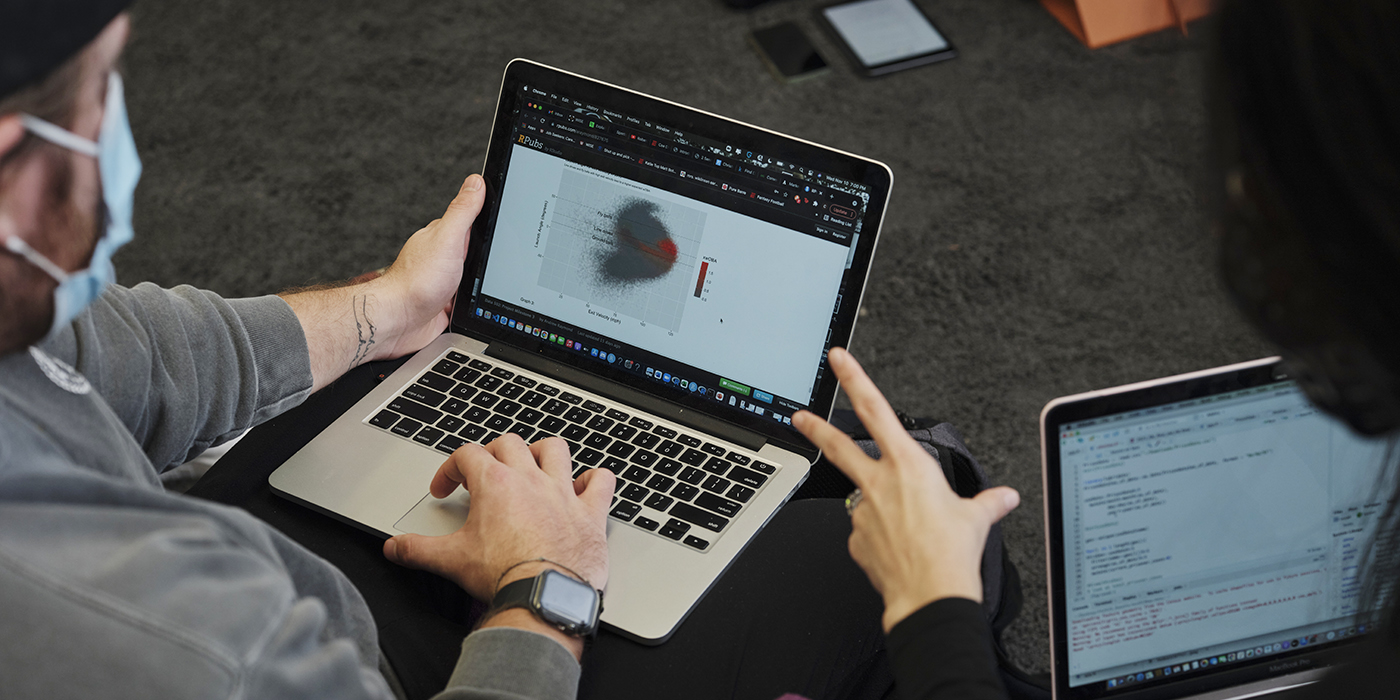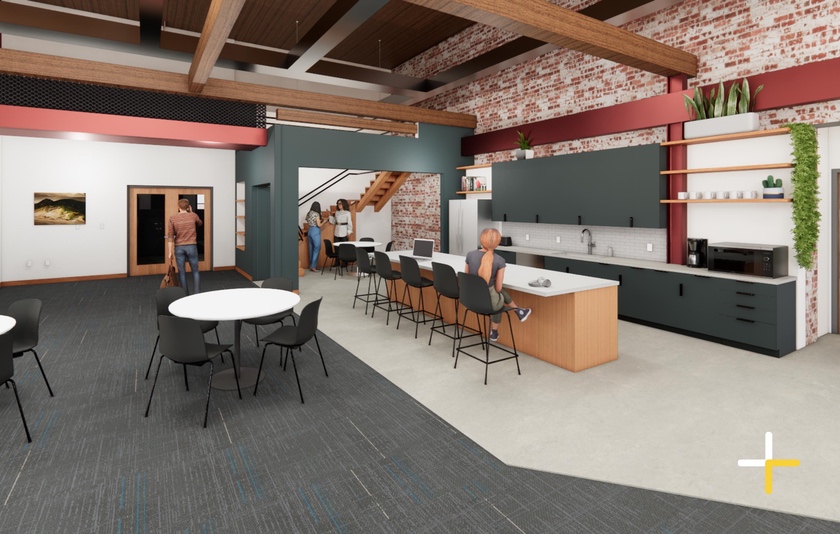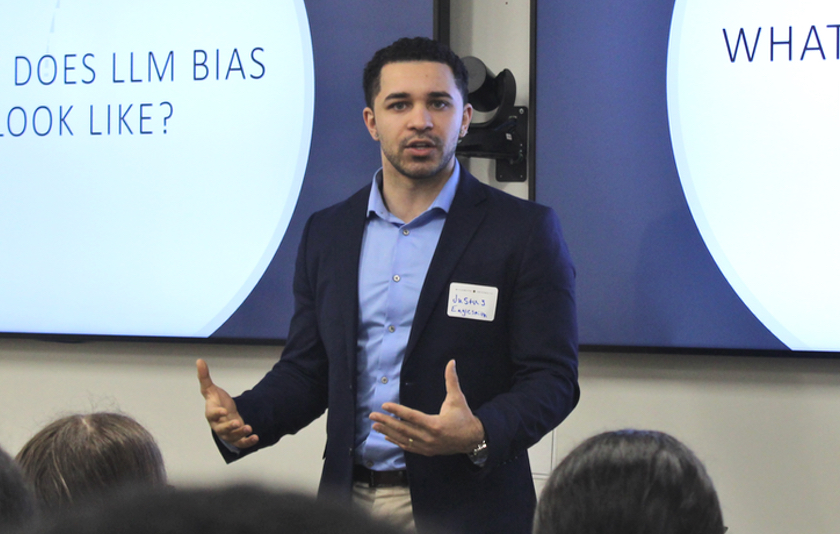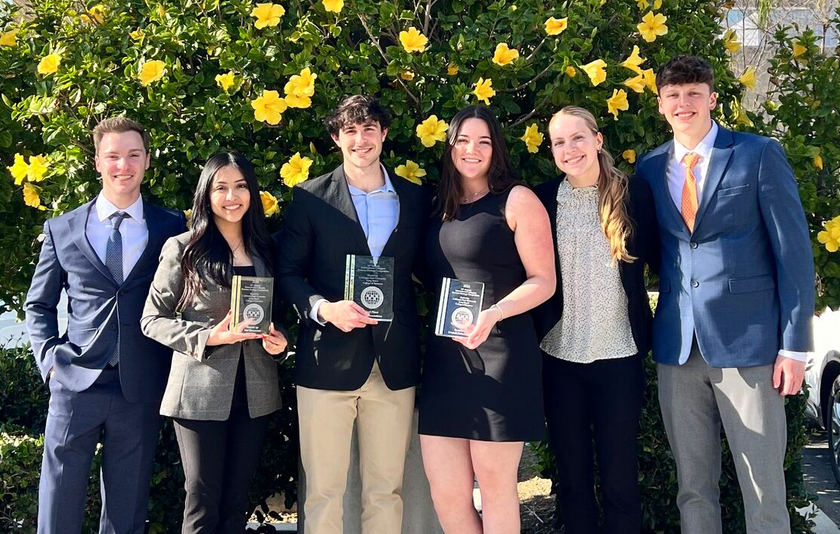When you think of Britney Spears, digital rights management might not be the first thing that comes to mind.
But the themes of power, control and financial benefit in her life might sound more familiar — and they also represent broader issues connected to data security.
In new cybersecurity and data classes at Willamette University, students study newsworthy people and problems to approach computer science topics not from a programming perspective, but a human-centered one.
Led by Assistant Professor of Computer and Data Science Calvin Deutschbein (pronouns: they/them), students in a new cybersecurity course gain technical skills, discuss the national cases of whistleblowers like former intelligence specialist Reality Winner, and acquire a better understanding of the ethical issues around data — what information is being secured and by whom — through the lens of philosophy, gender studies and other liberal arts fields.
“Cybersecurity is fundamentally about power — who has it, who doesn’t— and there are huge cultural issues that dominate the topic,” Deutschbein said.
In data structures, also taught by Deutschbein, students pick up techniques to organize data and understand it in different ways. They create linked lists, a common structure used for sorting, to examine vaccine distribution across the U.S., decipher the function of blockchain and track political donations — one tool that can help answer questions across various industries.
“When we teach computer science, there’s a common notion that it’s programming, but I think generally that’s a little reductionist,” Deutschbein said. “When we bring students into the program, we approach it with the idea of using programming to solve problems.”
The ability to tackle complex problems attracted Deutschbein to the field. After earning a double major in math and science at the University of Chicago in 2015, they landed a job working on software for NASA’s Artemis. Concerned by attempts at space exploration by agencies other than NASA and the rigor of their safety standards, Deutschbein pursued a master’s degree in real-time systems at University of North Carolina at Chapel Hill. Immediately after they graduated in 2017, a professor there convinced them to focus on security, so they stayed on for their PhD and completed it this past year.
Throughout their academic career, Deutschbein followed their passion for equity, inclusion and involvement. They ran for school board as a third-year PhD student, became a member of UNC’s student government and Chapel Hill community organizations, and worked with the Society of Women Engineers and Graduate Women in Computer Science, among other efforts.
They also found a way to apply their data knowledge to their interests — as a UNC student, they used data structures including linked lists to sort traffic stops by racial disparity. Once they discovered broken tail lights were among the most dangerous for Black drivers in town, they asked the city council to ban equipment stops.
At Willamette, Deutschbein’s students also apply their technical knowledge to real occurrences. Senate Bill 8, a controversial law in Texas that bans abortions after six weeks, is used as an example to teach cybersecurity students about threat modeling. By identifying the struggles of those seeking reproductive health care without violating confidentiality, students learn computing best practices to organize for equity, Deutschbein said.
The strong ethical framework found in Deutschbein’s courses and others at Willamette will help students use data in more responsible and powerful ways. Over the next several months, the university plans on expanding its data and computer science offerings, and Deutschbein hopes more students will start taking the classes regardless of their major.
“I want all Willamette students to have access to the knowledge and power and skills of computer science,” they said.




